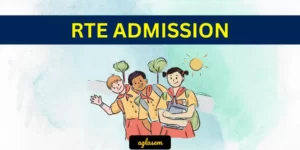rte act
The RTE Act, or the Right of Children to Free and Compulsory Education Act, is a landmark legislation enacted by the Government of India in 2009. Here's an overview of the RTE Act:
- Objective: The RTE Act aims to provide free and compulsory education to all children in the age group of 6 to 14 years. It recognizes education as a fundamental right and seeks to ensure that every child has access to quality education without any discrimination.
- Key Provisions:
- Free Education: The Act mandates that every child has the right to free education in a neighborhood school up to the elementary level (Class 8).
- Compulsory Education: It makes it obligatory for the government and local authorities to ensure that every child in the specified age group attends school.
- Quality Standards: The Act sets minimum norms and standards for school infrastructure, teacher qualifications, pupil-teacher ratio, and other facilities to ensure quality education.
- Reservations: The RTE Act reserves 25% of seats in private unaided schools for children belonging to economically weaker sections and disadvantaged groups.
- Non-Discrimination: It prohibits discrimination on grounds of religion, caste, gender, or socio-economic status in admission and other aspects of education.
- No Detention Policy: The Act includes a provision for a no-detention policy up to Class 8, meaning students cannot be detained or failed until this grade.
- Implementation: The RTE Act places the responsibility for its implementation on the state governments and local authorities. They are tasked with ensuring the effective implementation of the Act's provisions and monitoring compliance.
- Monitoring and Evaluation: The Act establishes mechanisms for monitoring and evaluating the progress of its implementation at both the national and state levels. It also provides for the appointment of independent bodies for oversight and accountability.
The RTE Act represents a significant step towards achieving universal elementary education and addressing educational disparities in India. It emphasizes the importance of education in empowering children and building a more inclusive and equitable society.

